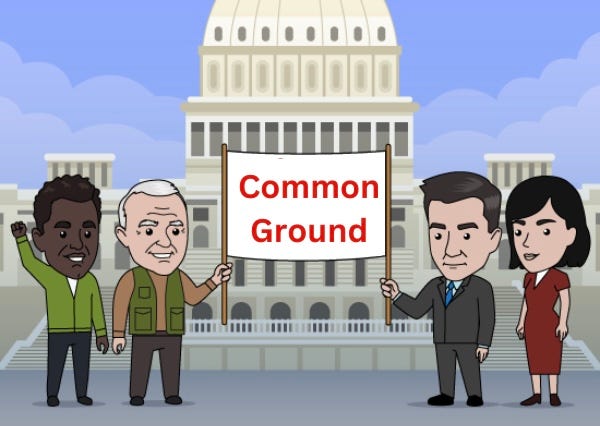For climate hawks, it may seem like time is now divided into two distinct periods — the hopeful one before the election and the bewildering haze ever since. Clearly, things did not go quite as many environmentalists hoped. Big challenges lie ahead. We’ll need more time to figure out the full range of strategies to confront them.
But one important option persists from the before times: the opportunity to make a serious effort to reach out to folks who have not been part of the climate tribe.
Now more than ever, it seems to me, we should work to grow the bipartisan constituency supporting pragmatic environmental progress. And yes, of course, that includes reaching out to voters for Trump and other Republicans.
The winning argument here is simple: Climate policy does more than only address climate change. Smart, pragmatic climate action supports energy security, affordable and lower energy prices, and good onshore jobs. Republicans keep saying they want exactly these outcomes.
What areas can we point to?
The IRA Bill. It’s a package of incentives designed to yield precisely the benefits listed above, in addition to driving the energy transition. IRA investments are happening across the country—especially in red states—creating jobs and economic momentum in exactly the way local elected officials want. And they know it too. That’s why 18 House Republicans submitted a letter calling on Speaker Johnson not to repeal the IRA’s clean energy tax credits. Putting pressure on the new administration to keep the IRA seems like a no-brainer to sustain some progress and to continue growing the coalition supporting climate action.
Permitting Reform. Republicans say they are eager to reduce bureaucratic red tape and streamline the approval processes connected to new infrastructure projects. Again, this ought to be an area where we can find some agreement. Grid expansion and clean energy projects have been stymied by very slow permitting. To be sure, many Republican proponents of reform are focused on fossil energy sources, not renewables. That’s the nature of politics. You have to compromise to move forward. Engaging skillfully could lead to climate progress and a bigger tent. Definitely worth pursuing.
State-Level Opportunities. The political dynamics are much more favorable in certain states. Successes here can set up opportunities in other states and ultimately at the national level. Take the Powered by Michigan campaign. It’s a great initiative where a broad team is doing exactly what we’re talking about. They’re working hard to build expansive support for clean energy, clean jobs, and a clean future. There is lots to do along these lines across various states.
Conservation and Biodiversity. I learned firsthand at The Nature Conservancy that if you did the right work, genuinely reached out to diverse constituents, and took the time to understand what they wanted, you could build majority bipartisan support for conservation and biodiversity initiatives across each of the 50 states and absolutely across both sides of the aisle. Such initiatives will have climate benefits as well. It’s a good time to redouble these efforts.
Corporate Policy Support. This might not be the best setting or time to push companies on their net-zero commitments. Internal advocates are less likely to find support and may even face outright opposition from elected officials. But it is, in fact, a good time to ask private sector leaders to support the types of common sense policy initiatives discussed above—and to do so in a very direct way.
Look, we get that many people are frustrated by the election outcome and don’t like what they’ve seen thus far from the Trump team post-election. It looks like there will be plenty for us to resist and oppose.
But we need to remember that we are in the race of our lives. We shouldn’t let opportunities for progress or coalition-building go by. This is not the time for environmentalists to be on the sidelines. Let’s achieve progress wherever we can, and let’s do everything we can to keep growing our coalition.
Onward,
Thanks to Scott Corwin for contributing ideas to this week’s issue.



Enjoyed your post Mark. Love the "finding common ground" perspective.
Excellent - thanks Mark - spot on!